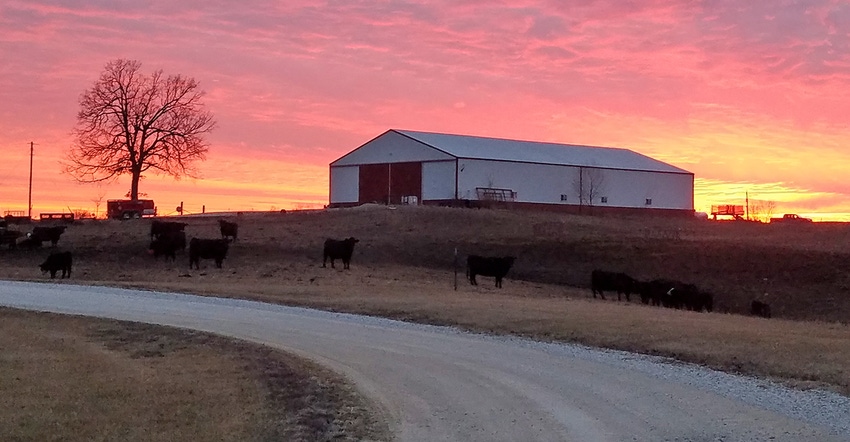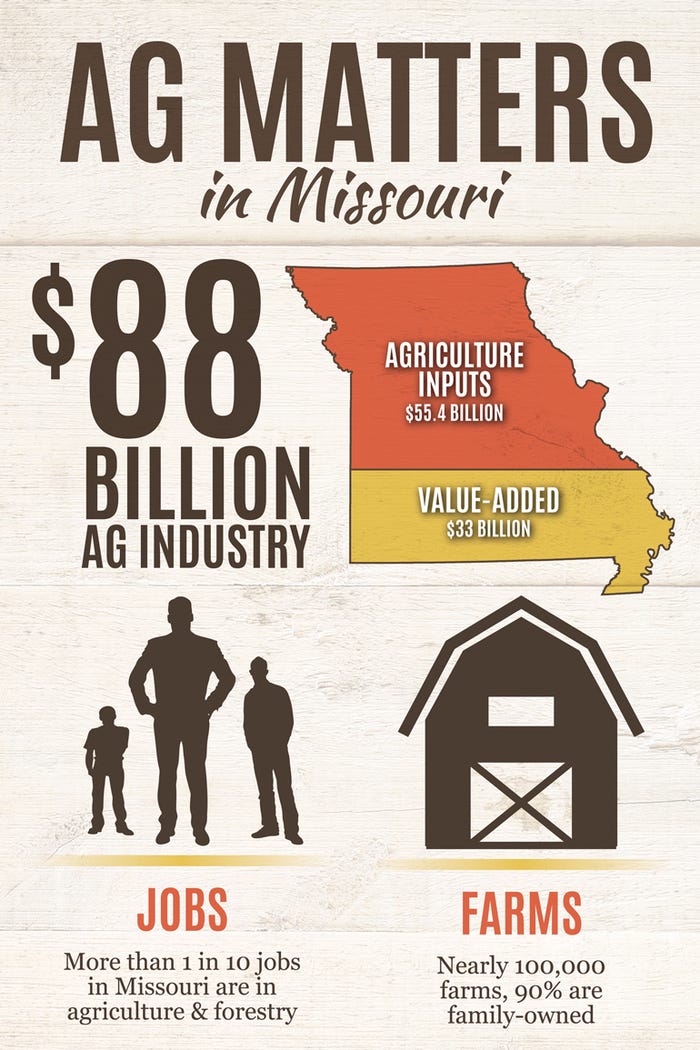March 14, 2017

If you're a farmer like me, agriculture has long been in your blood. When I look out my back door and see the beauty that lies in front of me, I know I've chosen the right place to build a life for my family. I'm proud. Proud of the hard work. Proud of the accomplishments. Proud to be raising nourishment for my family and yours.
With that pride comes a great deal of duty, a duty to share the farm story. We, as farmers, have put our heads down and asked people to let us focus on farming, and let them focus on themselves. We got what we asked for. Now, a significant portion of the population knows little about the beauty we see every day in rural Missouri, or the hard work it takes to grow and raise food — much less the impact it has on every single person in the world.
As we work to rebuild relationships with the consumers of our farm products, we need some proof to emphasize the importance of agriculture. I'm here to offer some facts and figures that will demonstrate the undeniable impact of agriculture. We know that numbers alone won't cut it, but they are a central component. So here you go:

Source: Missouri Department of Agriculture

•Economics. In Missouri, agriculture has an $88.4 billion economic contribution ($33 billion in value-added, plus $55.4 billion in inputs). In fact, agriculture and forestry account for 14.8% of Missouri's total sales annually.
•Jobs. More than 1 out of every 10 jobs in Missouri are in agriculture and forestry. Agriculture and forestry contribute 9.3% of the state's total labor income, or $17.5 billion.
•Farms. Missouri is home to nearly 100,000 farms, and 90% of those are family-owned. Of all of Missouri's land, about 35% across the state is forested.
•Farmers. The average age of a Missouri farmer has increased from 54 years old in 1997 to 58 years old in 2012. There is a significantly smaller number of young farmers than older farmers, and the majority of farmers fall into the 45-54 and 70-plus age groups.
We can all agree that numbers don't lie, and when we’re talking about agriculture, these numbers can drive home the fact that agriculture matters to everyone.
This is just a sliver of the plethora of data gathered by the Missouri Department of Agriculture and Missouri Farm Bureau's Missouri Agriculture Economic Contribution Study. Arm yourself with more information, including county and Congressional district-level numbers, at agriculture.mo.gov.
Chinn is the director of the Missouri Department of Agriculture and a hog producer from Clarence.
About the Author(s)
You May Also Like




